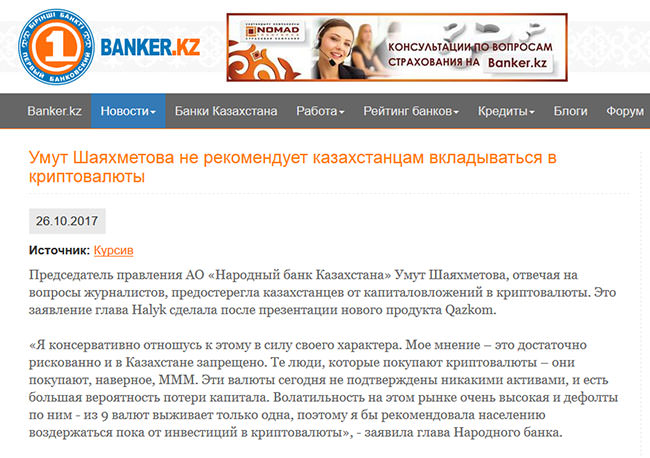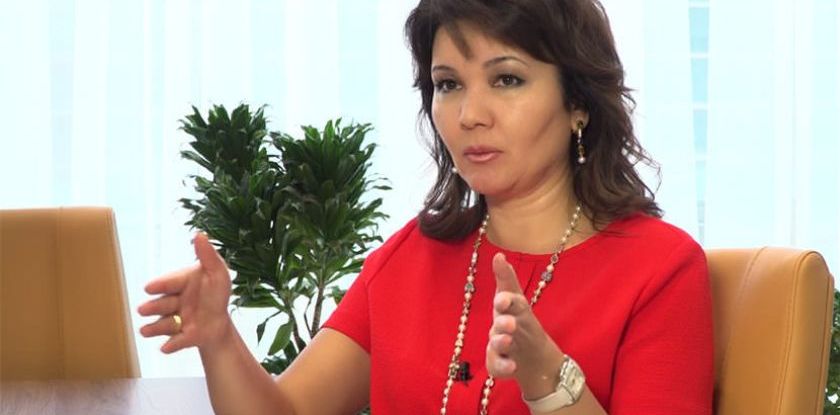The story of Kazkom rescue by the means of investing 2.4 trillion tenge from the state budget and the following sale of the financial institute to Halyk Bank for two tenge may have left the front pages of the Kazakhstan media. However, this story is still far from being finished.
This is evident from Umut Shayakhmetova’s recent interview to Euromoney that has been republished by some Kazakhstan media and Internet resources, for example, Banker.kz.

Umut Shayakhmetova does not Recommend Investing in Digital Currencies
Source: Kursiv
Answering the reporters’ questions, Halyk Bank Chairperson Umut Shayakhmetova warned the Kazakhstan citizens against investing in digital currencies. She made this statement after presenting a new product called Qazkom. “I view this conservatively due to my personality. In my opinion, it is rather risky and is banned in Kazakhstan. The people who purchase digital currencies are probably buying a “Ponzi scheme”. Today, these currencies are not backed by any assets so the probability to lose the capital is rather high. This market is highly volatile. Talking about defaults – out of 9 currencies, only one survives. Therefore, I would recommend refraining from investing in the digital currencies”, said Halyk Bank Char.
In particular, she admitted that she “was surprised with the high level of the problem loans”. According to her, “the major part of these loans, just like it was in the BTA case, is associated with construction and real estate”. At that, Ms. Shayakhmetova is certain that “a part of these funds can be recovered through sale or restructuring” since “a significant portion of the Kazkom problem loans is backed by good collaterals that guarantee the flow of the money”.
Considering this admission, one may predict that, in November 2017, the question whether to unite the financial institutes soon will be resolved negatively. And if the decision is still positive, the merger will happen no earlier than in two years, perhaps even later than that.
What are our reasons for suggesting this?
The matter is that, according to Ms. Shayakhmetova, 80% of the Kazkommertsbank loan portfolio had been analyzed in the course of due diligence. It was discovered that, even after “eliminating the BTA problem loans, the portion of the non-performing loans in the Kazkom portfolio equals 43%.
Since the Hayk Bank group, though a private enterprise, due to its gigantic size and its systemic significance for the Kazakhstan economy and financial system, has de-facto been transformed into a quasi-state agency, it is unlikely that its management will dare to unite the two banks without sorting through the remaining 20% of the Kazkom loans if for no other reason than to make sure they will not end up scapegoats. By our estimates, this will take at least two years provided that Akorda gives permission for this delay.
Of course, if an order will be given by the National Bank of Kazakhstan that needs current successes in strengthening the banking sector and the financial system, Akorda may force the Halyk Bank major shareholders to speed up the merger to a maximum. And this does make sense since the merger will result not only in decreasing the expenditures, improving the technological process, eliminating doubling of the products, and competing for the high-quality borrowers inside the group but also in disappearing of Kazkom whose never-ending problems will rather scare the clients than attract them.




